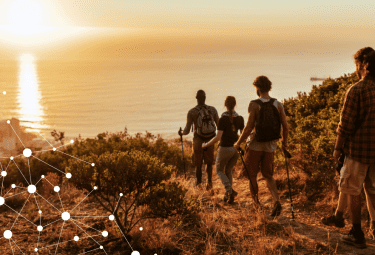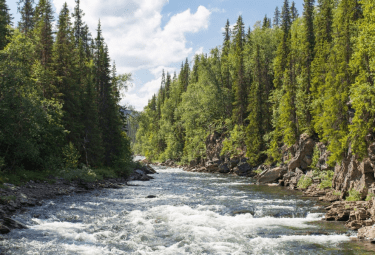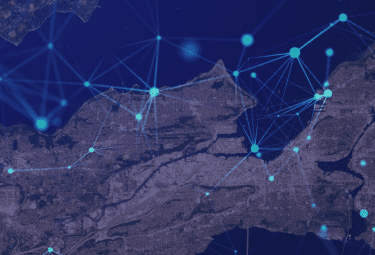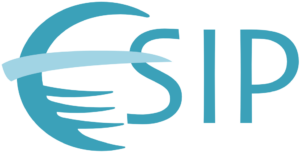Innovation to Impact. See you at the July ESIP Meeting.
FUNding Friday: Seed Money Won with Markers and Two Minutes
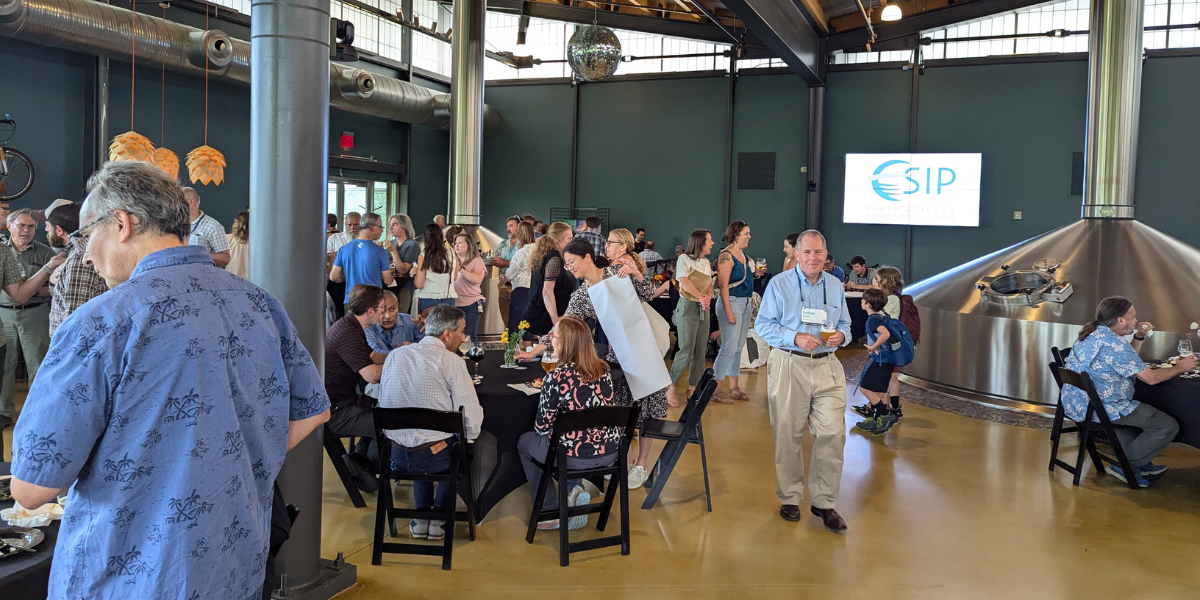
Curiosity and openness are core to the Earth Science Information Partners (ESIP) community. One of the more playful initiatives at ESIP is a microfunding competition called FUNding Friday.
Here are the 2024 projects plus short write ups from each.
Napkin science. Elevator pitch. Popularity contest.
None of these quite describe the annual FUNding Friday events. But there are common elements. Poster making is a casual social event where participants draw and hand write their ideas. The following morning, every poster gets two minutes to win over a crowd that votes on the spot for their favorites. The event is popular enough that pitchers and voters alike show up early and barely caffeinated on the final morning of the July ESIP Meeting.
It’s easy to understand why.
So much of funding, pitching and even sharing ideas is competitive, high stakes, complicated and formal in modern research. FUNding Friday is a refreshing and lighthearted counter to those pressures. Plus, there is nothing quite as delicious as a new idea.
Microfunding is an important mechanism for fresh takes and sorting through the odds and ends. In the broadest sense, ESIP’s community is dedicated to solving the planet’s greatest challenges. But it is the small steps and creative ideas that keep us rooted in actionable data.
Here are this year’s winning FUNding Friday projects. Each section includes the group’s poster and a short write up crafted using the Up Goer Five and Simple Writer text editors (which only use the 1,000 most common English words).
- “Teaching Differently Abled Learners to Be Citizen Scientists” | PI: Pamela Freeman, Kenmore East
- “Help Desk Data At Risk” | PI: Chandra Earl, NEON
- “Enhancing Indigenous Data Management Capacities” | PI: Joseph Gum, UCAR
- “A Day in the Life” | PI: Tim Freeman, Kenmore East
- “CYPHER: Communities Yielding Power by Harnessing Emergent Resources” | PI: Amy Quarkume, Howard University
- “FUSION: Framework for Unifying Systematic Integration of Observational Networks” | PI: Debasish Mishra, Texas A&M
FUSION: Framework for Unifying Systematic Integration of Observational Networks
Networks vary — effective natural disaster response requires collaboration.
The plan: design a toolkit to connect scientists, data managers, networks and databases.
Debasish Mishra (Texas A&M)
Tall things help us study the fields by gathering two main kinds of information:
Heat and light information: Shows how heat and light move between the ground and air.
Breathing information: Shows how much air stuff moves in and out of the ground, like how green life grows and breathes.
This information often needs fixing because of missing pieces or strange readings. But the ways we fix heat and breathing information don’t work well together, adding extra work.
This effort will make a way to fix both kinds of information in one place, saving time and helping us learn more about the fields.
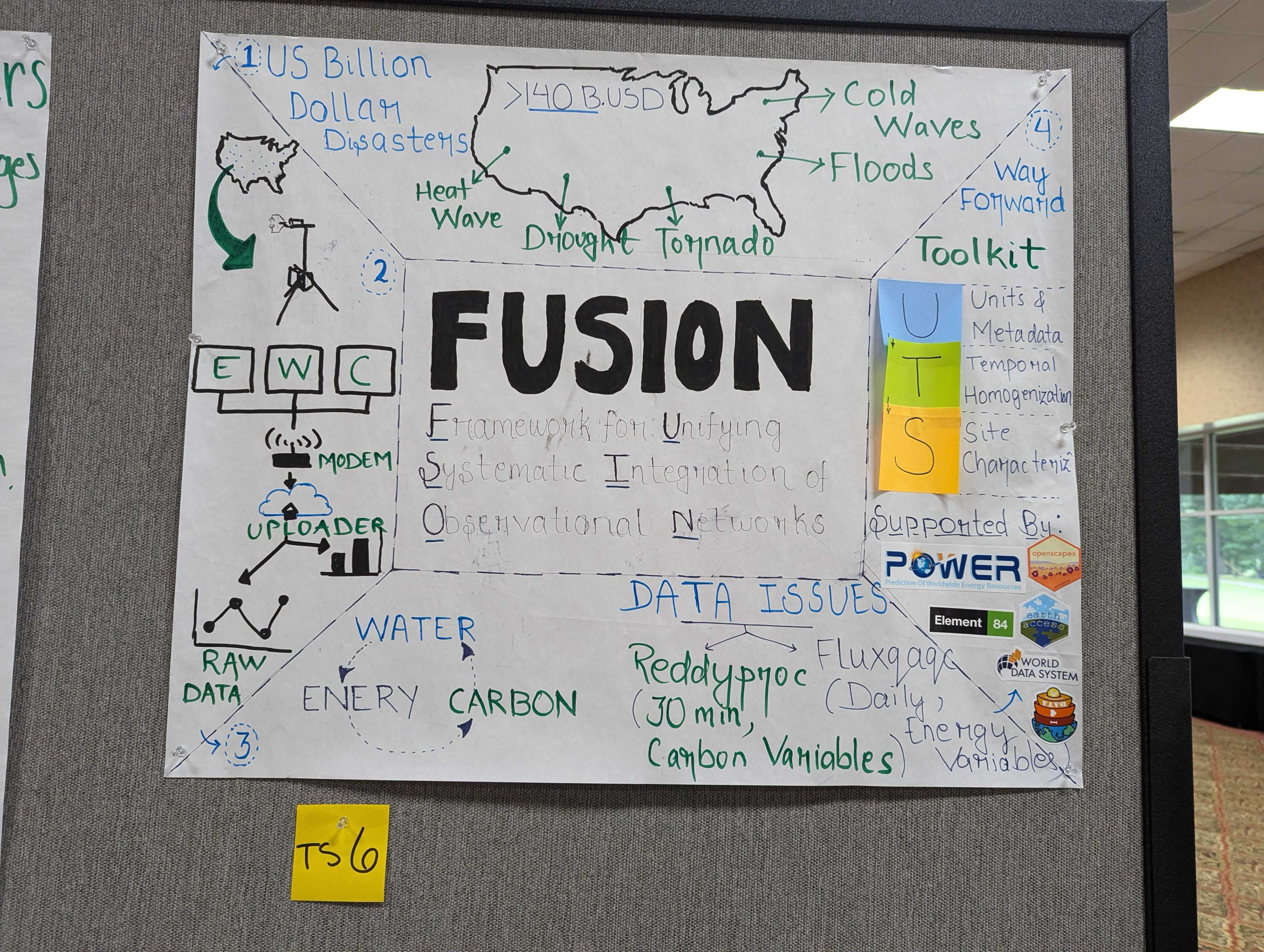
CYPHER: Communities Yielding Power by Harnessing Emergent Resources
Today’s high schoolers are the future of geoscience professions.
The plan: build trust and data literacy through 3-D printing and Internet of Things (IoT) activities.
Amy Quarkume (Howard University), Agbeli Ameko (NSF NCAR/UCAR), Steve Diggs (University of California Office of the President), Keith Maull (NSF NCAR/UCAR)
The world is getting hotter, storms are getting worse, and some people feel that more than others. We want to work in three places and with many people to help different groups meet. We will do that through the power of tech and talking.
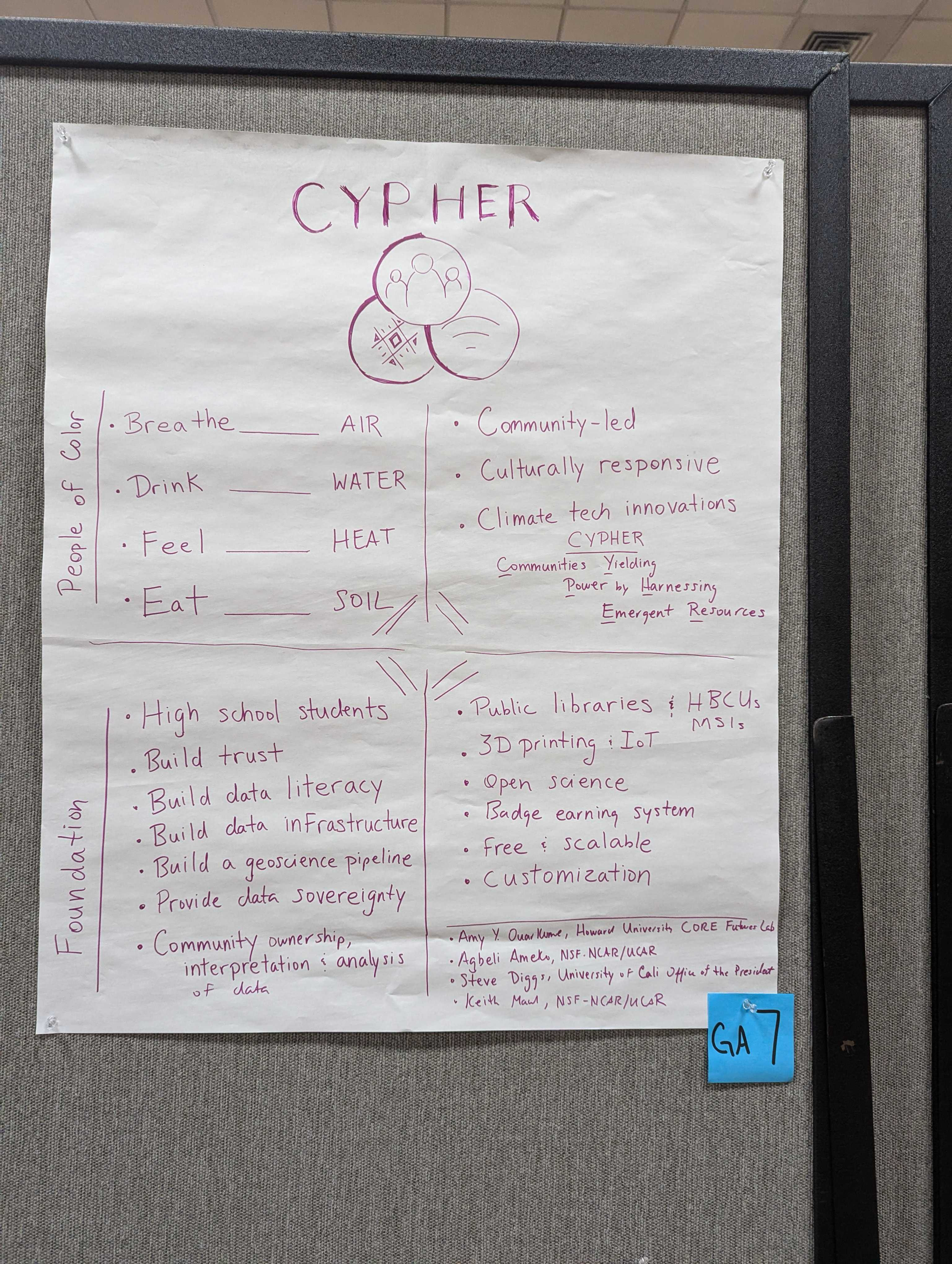
Teaching Differently Abled Learners to Be Citizen Scientists
Citizen science practices can teach life skills.
The plan: students board a ship to collect and identify plankton that can be paired with cloud-based data.
Pamela Freeman (Kenmore East High School)
Students go on water. Look at life in water. Take pictures of the sky. Dance and eat. Share stories with friends and family.
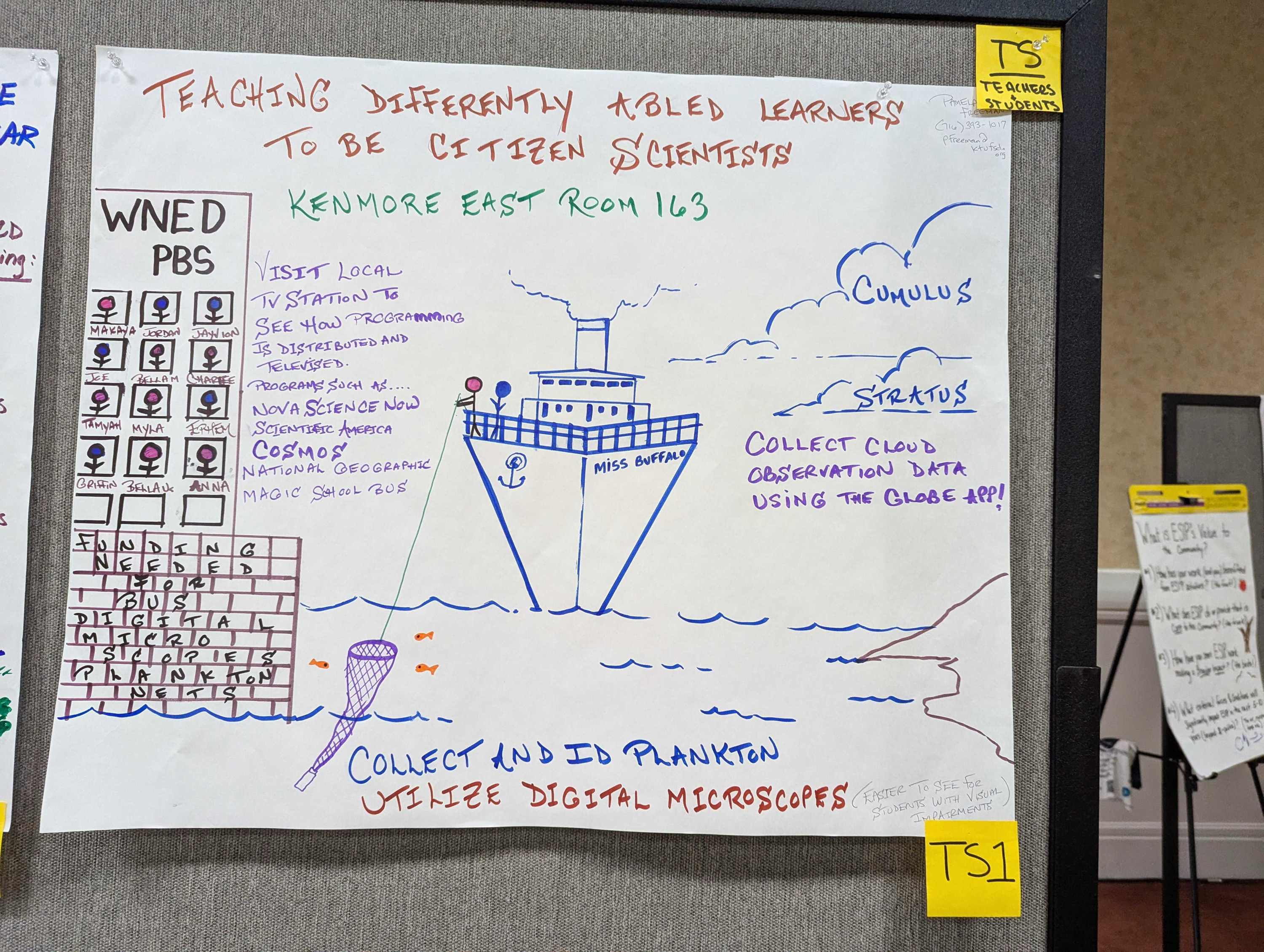
Data Help Desk At Risk
Bring scientists and data experts together to share successes, challenges, resources, and common questions at conferences.
The plan: reshape the Open Science and Data Help Desk into a volunteer effort.
Chandra Earl (NEON), Amber Budden (University of California Santa Barbara) and Steve Diggs (University of California Office of the President)
Help people meet each other to learn how to share and use their earth information. At big meetings, we take in all kinds of questions. We will make a “How-To” with ideas, friends in the know, and simple steps so anyone can set up a help desk. People early in their work will get some money to work the desk and join a meeting to help others starting out. By doing this, we hope the help desk can keep going and grow bigger.
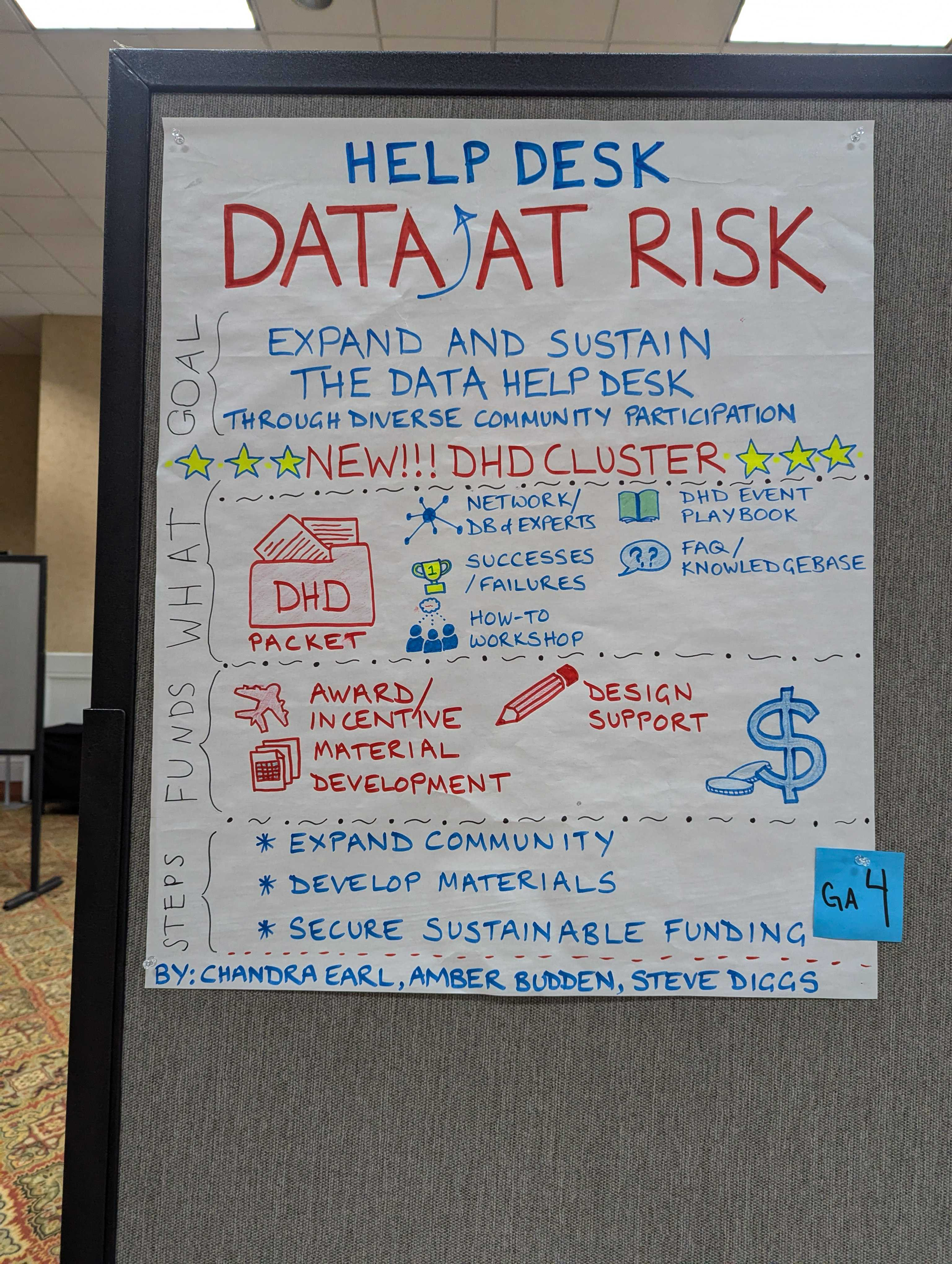
Enhancing Indigenous Data Management Capacities
Our plenary speaker made a call to action — how can we do better?
The plan: identify gaps, bring in champions and co-produce data management plans for landscapes and communities.
Joseph Gum (UCAR), Laura Brenskelle (NOAA), Madison Langseth (USGS), Carolina Berys-Gonzalez (UCSD), Mathew Biddle (NOAA), Andrew Child (University of Idaho)
People should be in control of their information. Following a talk, our group came up with a plan to help. The first step: find the right people. Then ask them questions about what they think is missing and the best ways to move forward. Create together.
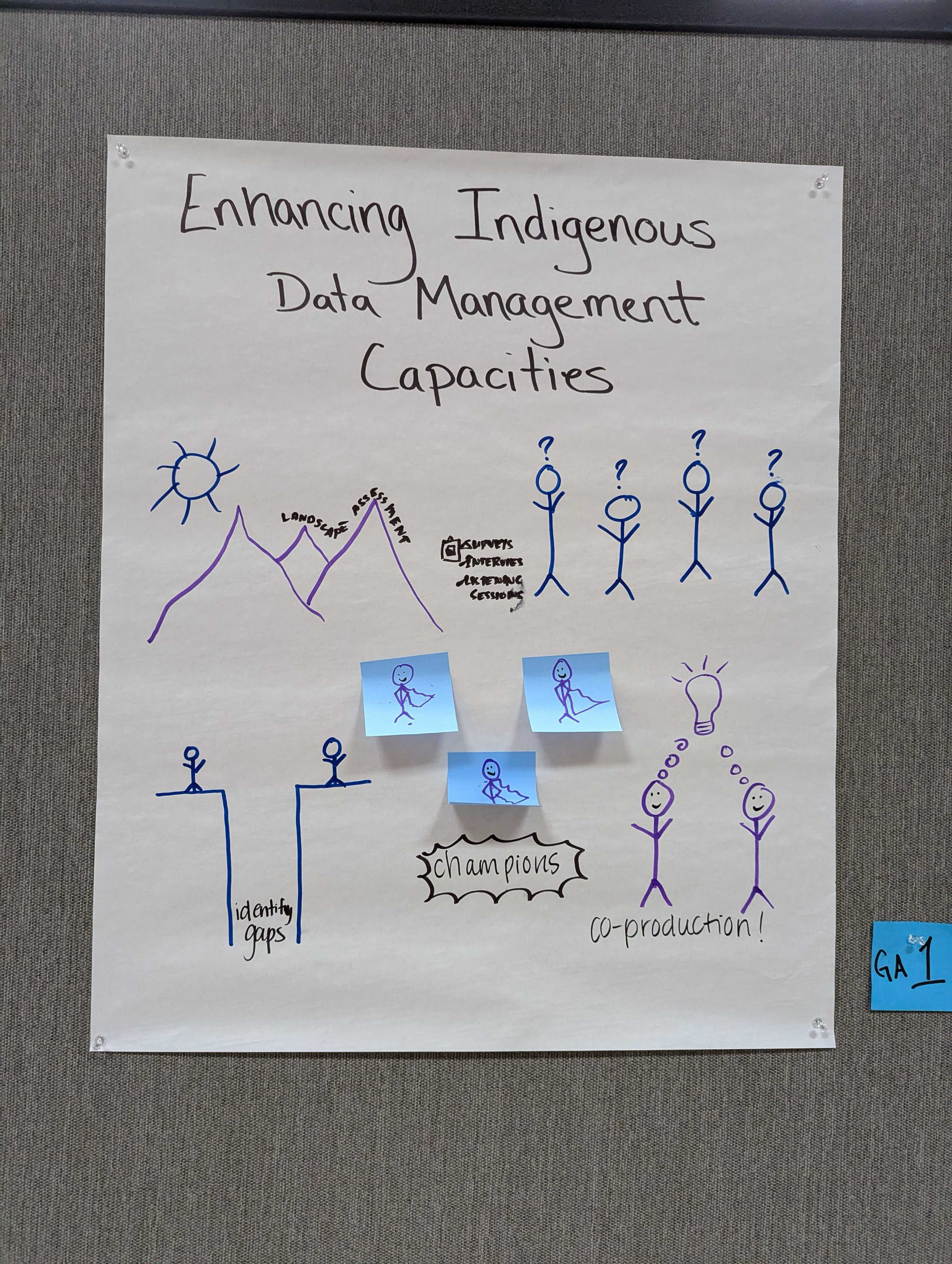
A Day in the Life
A longstanding and beloved field trip is at risk of cancellation.
The plan: get a bus and purchase equipment so students can wade into a local creek and explore Earth science data in real life.
Tim Freeman (Kenmore East High School)
Kids go to water. Look around. Have fun. Learn. Eat and laugh. Return to school. Share stuff with others.
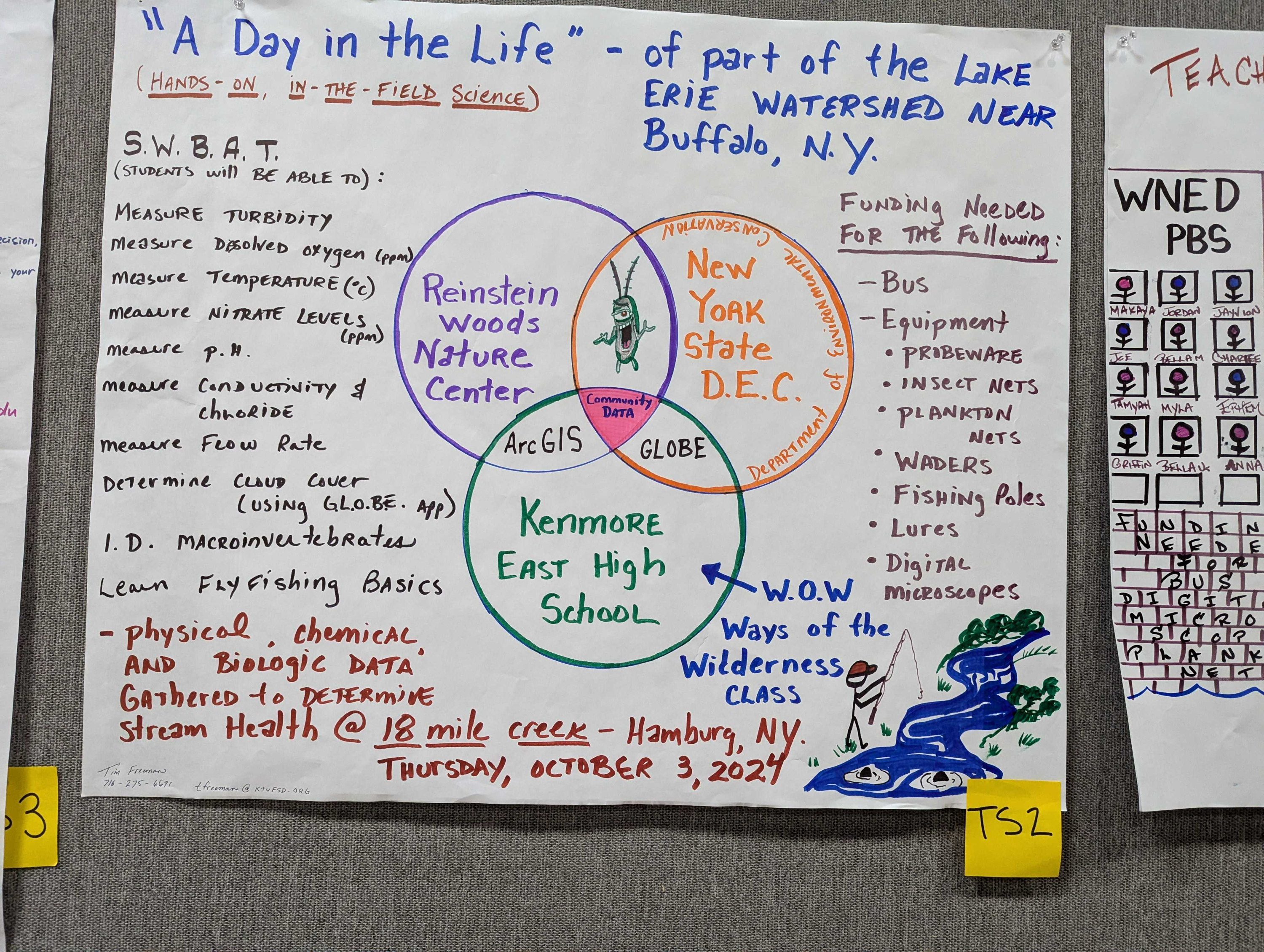
Allison Mills wrote the article intro and each PI wrote their section of plain language summaries using the Up Goer Five and Simple Writer text editors.
ESIP stands for Earth Science Information Partners and is a community of partner organizations and volunteers. We work together to meet environmental data challenges and look for opportunities to expand, improve, and innovate across Earth science disciplines.
Learn more esipfed.org/get-involved and sign up for the weekly ESIP Update for #EarthScienceData events, funding, webinars and ESIP announcements.

